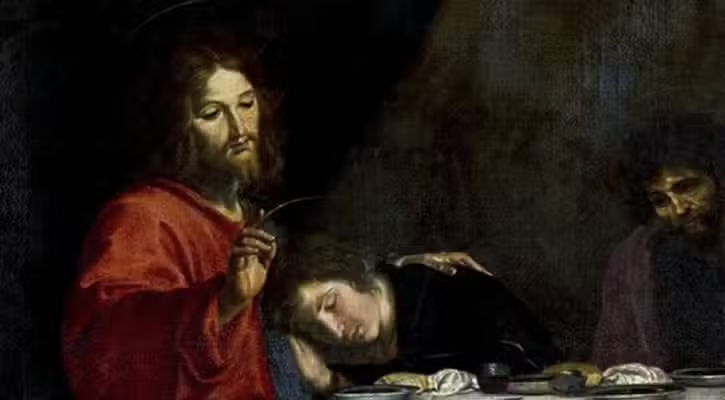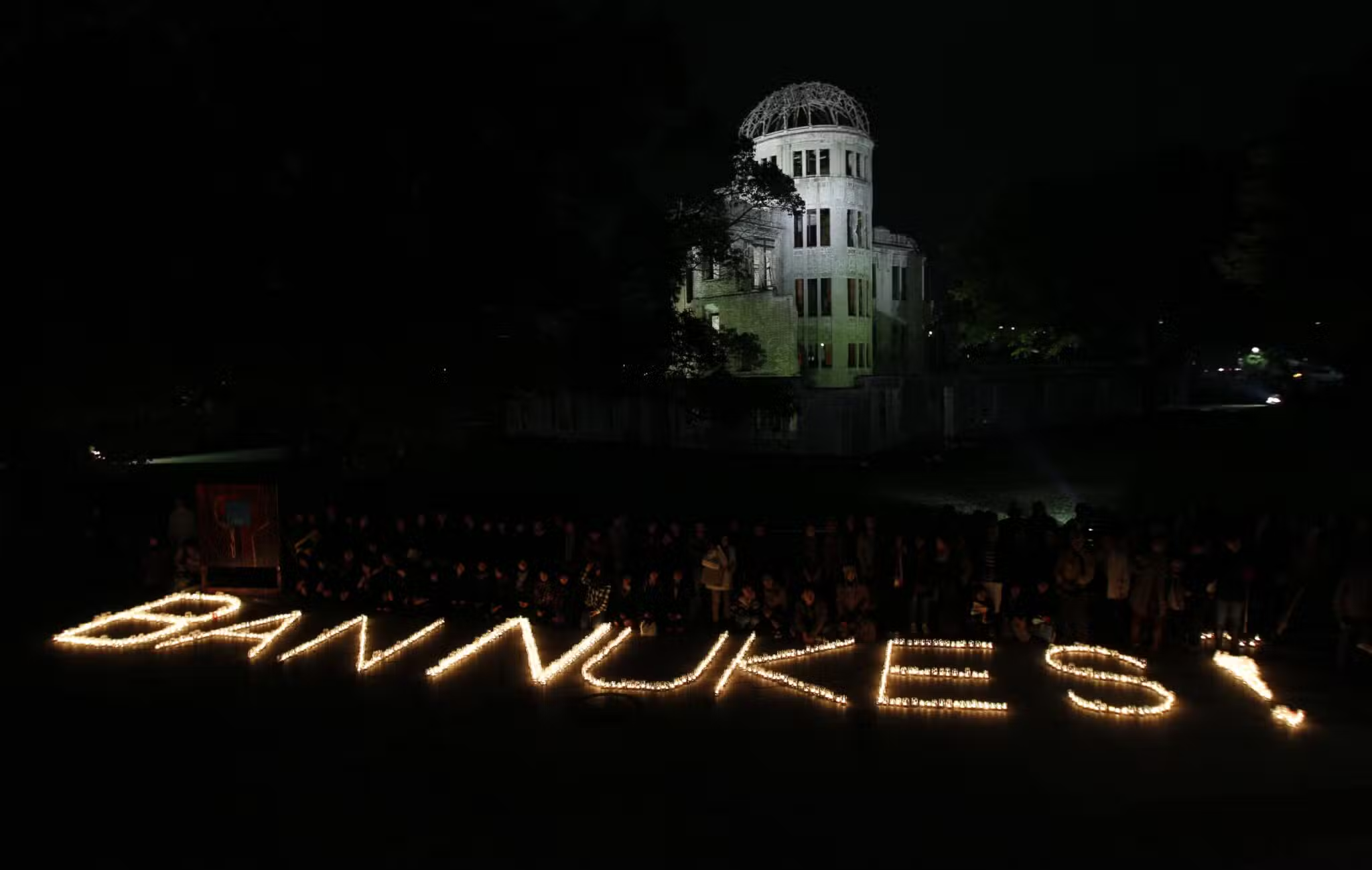In all three synoptic Gospels (Matthew, Mark, and Luke), we read that Jesus anticipated the Passover meal as he arrived in Jerusalem, and understood the need to prepare for it. The careful and varying details in each of the accounts give weight to the importance of what was to happen there.
The Upper Room was very much on his mind. In Matthew’s Gospel, Jesus gives his disciples specific instructions about how they were to prepare for the event, though they could not have known how significant that evening would be for them all—the last time Jesus would celebrate with them in this world. As we read the other Gospel narratives, even the smallest details take on eternal significance.
Reading Mark’s Gospel, we see that Jesus was more specific, even prophetic about the details:
He sent two of his disciples and said to them, “Go into the city and a man will meet you, carrying a jar of water. Follow him. Wherever he enters, say to the master of the house, ‘The Teacher says, “Where is my guest room where I may eat the Passover with my disciples?”’ Then he will show you a large upper room furnished and ready. Make the preparations for us there.” The disciples then went off, entered the city, and found it just as he had told them; and they prepared the Passover (Mark 14:13–16).
Jesus is even more detailed and prophetic in the account of Luke.
When the day of the feast of Unleavened Bread arrived, the day for sacrificing the Passover lamb, he sent out Peter and John, instructing them, “Go and make preparations for us to eat the Passover.” They asked him, “Where do you want us to make the preparations?” And he answered them, “When you go into the city, a man will meet you carrying a jar of water. Follow him into the house that he enters and say to the master of the house, ‘The teacher says to you, “Where is the guest room where I may eat the Passover with my disciples?”’ he will show you a large upper room that is furnished. Make the preparations there.” Then they went off and found everything exactly as he had told them, and there they prepared the Passover (Luke 22:7–13).
The nuances of each Gospel account vary, as often do the details of the same story between different storytellers. Yet we consistently see the importance of the room reflected in Jesus’s words. In all three accounts, it is clear that he has a specific place in mind. The room itself is a part of God’s plan, a designated holy space that is ready and waiting to receive Jesus and all that is to come.
An Eager Desire
And when the “Hour” came, Jesus took his place at table in the Upper Room with his apostles, the Upper Room which had been prepared, and said to them: “I have eagerly desired to eat this Passover with you before I suffer for, I tell you, I shall not eat it again until there is fulfillment in the kingdom of God” (Luke 22:15–16).
The words “eagerly desired” are unique to the Gospel account of St. Luke. Here, we get a taste of God’s longing for relationship with his followers. These two words, so easy to miss in a quick reading, are just a spark in the flame of Jesus’s love for his disciples. Knowing all that was to come—knowing even then that one of the men in that very room would betray him—Jesus still “eagerly desired” to share a meal with them. He stands before them and offers his unconditional friendship, eagerly inviting them to share the Passover with him.
In the book of Revelation, we find a powerful image of the Lord who knocks on the door of our hearts, and waits to be welcomed inside: “Behold, I stand at the door and knock. If anyone hears my voice and opens the door, I will enter his house and dine with him, and he with me” (Revelation 3:20).
In our day, Jesus knocks at the door of our hearts and eagerly desires to dine with us at the sacrificial meal we call the Eucharist. He wishes to find us ready to receive him, to sit down and eat with him, in the upper rooms of our lives.
How urgently do we respond to his request? Do we “eagerly desire” to be with him, too? Do we prepare our hearts to respond each Sunday and holy day? During the weekdays? Occasionally? Periodically?
In the Catechism of the Catholic Church, we read: “As often as the sacrifice of the Cross…is celebrated on the altar, the work of our redemption is carried out” (CCC 1364). Read those words again, and let them sink into your heart and take root there. What a profound way to think about the Eucharist! How can we not eagerly desire to participate in the Eucharist if we understand that our salvation, our very redemption is at stake?
Preparing Your Upper Room
Returning to the Gospel text, the apostles obey Jesus’s command and see to it that the Upper Room is set for the Passover meal. Jesus was quite explicit in his instructions in all three of the synoptic Gospels, and the disciples carefully obeyed.
So much was in store for the apostles, much more than they possibly could have anticipated. They had no idea that it was their last meal together, or how much they would learn and experience at that meal.
All they knew is what their Master told them. All they could do was follow his instructions.
How do we prepare ourselves for the Eucharist? Our preparations are different than the preparations required of the disciples for the Last Supper. They were concerned about finding the right room in Jerusalem, the room Jesus directed them to find.
For us, there is an internal preparation that is required. Worthy preparation is essential. But what does that mean to prepare worthily for participation in the Eucharist? It is Jesus Christ, after all, we receive at Holy Communion. It is his revealed Word that we hear in the Gospel each time we gather.
The United States Catechism for Adults clearly states that we need to prepare ourselves for reception of our Lord in Holy Communion. That preparation includes the following: Go to confession if needed. We must be in a state of grace, without any awareness of having committed a serious sin. If we have committed a grave or serious sin, we must go to confession before receiving the sacrament (USCCA 222).
Don’t forget to fast! We are to refrain from eating or drinking anything except water or medicine for at least one hour prior to receiving Holy Communion (USCCA 222).
Let your interior reverence guide your actions. The Catechism of the Catholic Church adds: “Bodily demeanor (gestures, clothing) ought to convey the respect, solemnity and joy of this moment when Christ becomes our guest” (CCC 1387). It is, after all, God’s house and we are his guests.
Reflect on the readings before Mass, if possible. This can be especially helpful if you or members of your household (children especially) have difficulty following the readings or the homily. Take time before Mass to read, study, and ponder that week’s Scripture texts. These are easily found online, or in your parish missal. Just as one would not normally attend an opera without studying the libretto, it is all the more important and helpful to read and pray over the Word of God before hearing it proclaimed at Mass, or listening to the priest or deacon reflect upon the readings during the homily.
Come a little early if you can, and remain for the entire liturgy. Arriving at Mass prior to the posted time helps us place ourselves in the proper disposition to appropriate fully the sacred mysteries, and to avail ourselves of the graces the Lord is waiting to pour out upon us.
Don’t forget to visit Jesus during the week! Eucharistic Adoration outside of the Mass is another wonderful means to prepare for Mass. In his Post-Synodal Apostolic Exhortation, Sacramentum Caritatis, Pope Benedict XVI writes:
The act of adoration outside Mass prolongs and intensifies all that takes place during the liturgical celebration itself. Indeed, “only in adoration can a profound and genuine reception mature. And it is precisely this personal encounter with the Lord that then strengthens the social mission contained in the Eucharist, which seeks to break down not only the walls that separate the Lord and ourselves, but also and especially the walls that separate us from one another” (SC 66).
The disciples, under the direction of Jesus himself, prepared for the Last Supper by finding the specific space in the Upper Room at Jerusalem. For us, another type of preparation is required. It is a spiritual and personal preparation. Both forms of preparation, space and spiritual, are necessary for a proper and fruitful celebration of the Eucharist.
By taking time to prepare our hearts in this way before going to Mass, we often find that the seed of God’s Word takes deeper root in us, assisting us in living his Word more fully in daily life.








